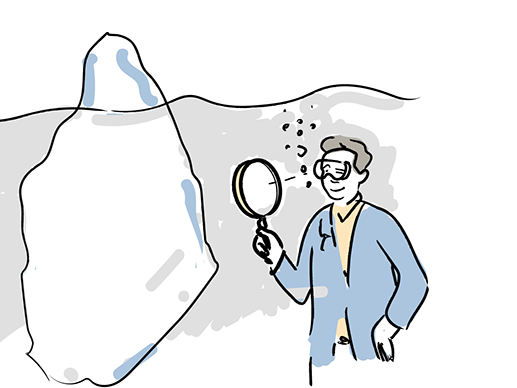Intercultural sensitivity (awareness, development, and ability of subjective cultural contexts), sometimes referred to as a precursor to intercultural competence (the behavioral aspect of existing in a multicultural environment), can be divided into stages that one goes through when seeing, thinking about, and interpreting happenings from an intercultural-difference perspective. The origins, one may argue, of both of these concepts, however, stands curiosity. This article will explore 10 tips on enhancing your curiosity in the context of intercultural sensitivity based on three areas: cognitive, affective, and behavioral skills.
Intercultural Sensitivity
10 tips on

10 Principles for enhancing curiosity
(inspired by and adapted from J M Bennet,
Developing Intercultural Competence, 2011)
To develop our own sense of intercultural curiosity, to develop abilities to interact sensitively and to competently behave effectively and appropriately across and within different cultural contexts, we need to focus on the following:
 1
1
Suspend your own assumptions and value judgments
Culture can influence perspectives of individuals, which leads to assumption making, having expectations and beliefs, potentially leading to conflict and disputes.
 2
2
Practice cultural humility
Being able to self-evaluate and self-critique may lead to improved power balances in the patient-physician dynamic, allowing for mutually beneficial relationships.
 3
3
Enhance your perception skills
Investigate and examine your own perception of cross-cultural experiences to practice broader interpretation of your skills, knowledge, and attitudes in various contexts.
 4
4
Develop multiple perspectives
Based on these competencies, develop further standpoints, that go beyond what you have grown up in, learned, or taught.
 5
5
Increase your tolerance of ambiguity
Knowing your own culture (cultural self-awareness) in contrast to other cultures (eg, reflected and experienced through communication styles and cultural values) can lead to a greater understanding of cultural generalizations without leading to stereotyping leading to an increased tolerance of cultural differences.
 6
6
Asking questions as culturally appropriate
Be alert to patients' reactions and possible behavioral differences and be sensitive to ask culturally appropriate questions. This will help bridge the divide between the patients' values system (made up of beliefs and practices) and the culture of medicine; ask sensitively and avoid hasty closure of questions.
 7
7
Becoming participant observers as appropriate
Create structured opportunities to share reactions and feelings of participants, the stress they have been exposed to or even the discoveries they have made; observe and reflect.
 8
8
Becoming analytically inquisitive
Each and every experience is unique and helps to understand the importance of differences that allow you to achieve a greater understanding. Recognize the limits of your understanding/comprehension and create space to cultural curiosity.
 9
9
Assessing the credibility of our intercultural sources
As with any research or project you undertake, gather information from various sources, compare but do not judge.
 10
10
Contribute to the AO spirit
Every encounter (be it at AO or in your own practice settings) provides an opportunity to have a positive effect on patient health. Cultural contact does not automatically lead to competence, however, intentional and developmental attitudes can lead to intercultural sensitivity and competence, which is a corner stone of the AO.
Selected TED talks on related topics
References
- Bennett M. Becoming Interculturally Competent. Toward Multiculturalism: A Reader in Multicultural Education. 2004. 2:62–77.
- Bennett M. Developing Intercultural Competence, AIEA. San Francisco, USA. 2011.
- Bennett M. Interactive Methods for Teaching about Cultural Differences, WISE Conference, North Carolina, USA. 2016.
- King T. Development of Student Skills in Reflective Writing, University of Portsmouth, UK. 2002.
- Hyder ZJ. Intercultural Competence: The Intersection of Intercultural Sensitivity and Self-Authorship, University of Tennessee Honors Thesis Projects, USA. 2015.



